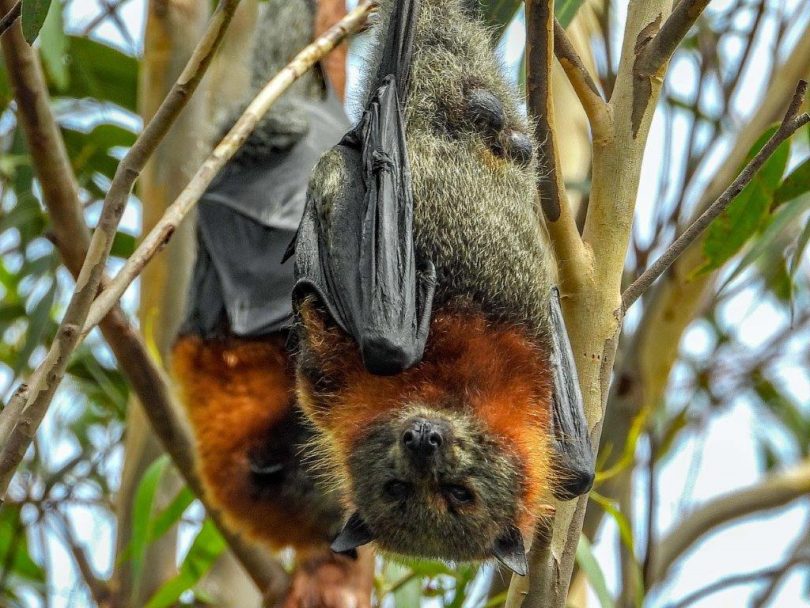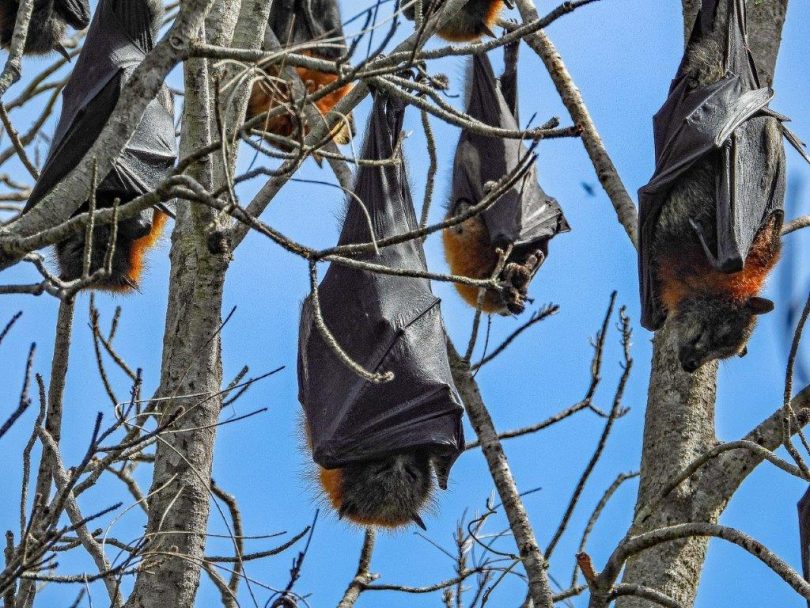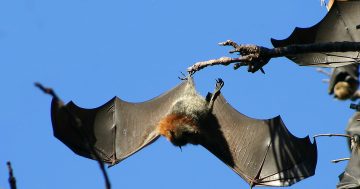
Eurobodalla Council says they are continuing to monitor flying-fox populations at the Batemans Bay Water Gardens, Catalina, Moruya Heads, Tuross Head, and Narooma. Photo: Bruno Fabbo.
Tension is building in the Eurobodalla on the back of increasing numbers of flying foxes.
New camps are being reported across the Eurobodalla and Bega Valley. At Tuross Head, residents and Eurobodalla Shire Council have seen an increase in the extent and population size of a camp that can now be seen from Hector McWilliam Drive.
Council’s Natural Resource Officer, Mitchell Jarvis says localised flowering of bloodwood and various eucalypt trees, might explain the current expansion at Tuross.
“We don’t know how long the flying foxes will remain at the camps across the shire, however their natural pattern is to follow food sources,” he says.
“These generally reduce over winter in the Eurobodalla, and we see the flying foxes then head elsewhere.
“Some of the flying foxes camps are also currently very noisy and we think this is due to the breeding season. In some camps even during the night, they may be noisy as the young are left behind when the parents head out for food.
“We’re hearing of very significant fluctuations of flying fox numbers in camps in the Bega Valley too,” he says.
“We’ll continue to monitor the five active camps here in the Eurobodalla at Batemans Bay Water Gardens, Catalina, Moruya Heads, Tuross Head, and Narooma. We also suspect there are more camps that we are unaware of.
“The community can assist by notifying us of any new daytime camps.”
On Council’s Facebook page the range of opinions that connect with the issue are on show, many extend from the region’s 2016 experience when 100,000 flying foxes, estimated to be 20% of Australia’s total flying fox population set up home in the Batemans Bay Water Gardens in the heart of town.
Some of the 102 comments include:
Steve Arthur writes, “We’ve got a zillion of them down the back of our place at the moment. They pong a bit when it rains but they look great when they head off en masse at dusk. They don’t bother me at all.”
Jenifer Mather; “Steve Arthur Flying foxes have unique odours that help them identify each other. The main odour associated with flying foxes is the scent male flying foxes use to mark their territory and to attract females during the mating season.”
Marg Wells; “They are going into trees at the back of our home in Bondi Street. They are going there just on dusk, then it appears they move to Hector McWilliam Drive in the early hours 2 am or 3 am, up there they are keeping people awake and messing on their homes, cars etc.”
Karin Granado writes, “Just let them be, respect their behavior and pattern of life, they are a very good part of our ecosystem and our planet, and also they are beautiful creatures.”
Karina Lee; “Yeah please don’t let the water gardens go back to how they were , it looks nice out there now, keep up the good work 😃, because we must remember too many bats can make us sick especially those with asthma and the elderly.”
Council says, “We’ve had people working early mornings to nudge the flying foxes to more desirable areas in the Water Garden ie away from the houses. We use low impact methods for this like torch lights and sprinklers. We’ll continue to monitor the situation and do what we can to minimise impacts on residents.”
As a result of the influx three years ago Council developed the Eurobodalla Flying Fox Management Plan which sets out a framework that directs actions aiming at reducing the impact of flying foxes on people and the conservation of the species.
“It can be extremely difficult to live near a flying fox camp and we will be looking to reinstate the subsidised services for some localities to assist affected residents as identified in the Plan,” Mr Jarvis says
For more information, or to report new daytime camps, visit Council’s website or phone Council’s Natural Resource Officer, Mitchell Jarvis on 4474 1263.

Flying Foxes at Tuross Head. Photo: Bruno Fabbo








